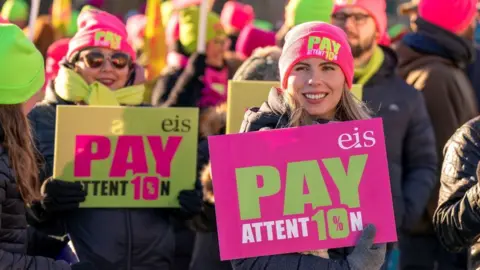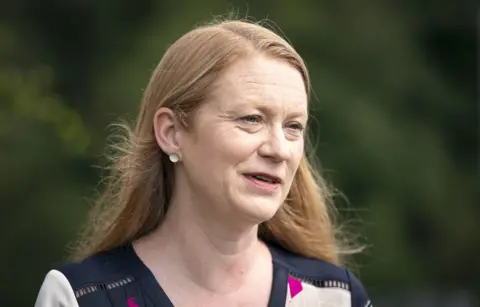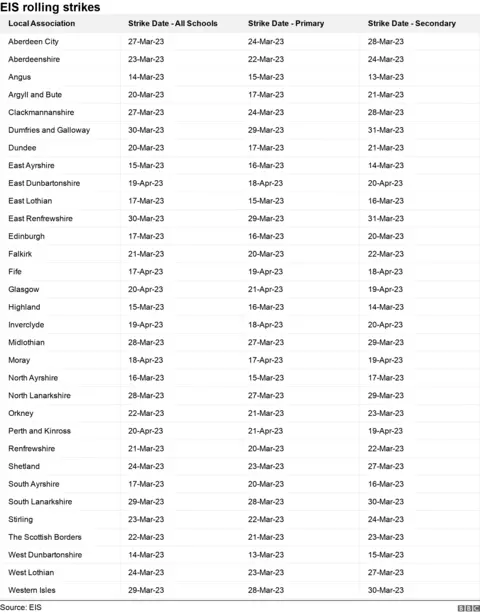Progress made during teacher strike pay talks
 PA Media
PA MediaScotland's largest teaching union and the Scottish government have said some progress has been made during informal talks to end the pay dispute.
EIS general secretary Andrea Bradley told BBC Reporting Scotland that the meeting on Tuesday was "useful".
And Education Secretary Shirley-Anne Somerville said discussions with the union and a Cosla official touched on possible "areas of compromise".
She confirmed formal discussions would now be held on Thursday.
Teachers' unions want a 10% pay increase but the Scottish government have repeatedly said their demands were "unaffordable".
The dispute has been running for more than a year.
On Wednesday thousands of children across the country missed lessons as many schools were closed for the second day in a row as members of the EIS and NASUWT walked out in the latest national strike action.
 PA Media
PA MediaSpeaking after the talks, Ms Somerville said: "I am pleased to say that progress was made at discussions between the Scottish government, local government and EIS colleagues. All parties showed their willingness to look for compromise.
"It would be for Cosla, as the employers, to make any revised offer and the Scottish government stands ready to support them to do that.
"I hope an offer can be made this week so this dispute can be resolved without further disruption to children and young people's education."
She added ministers would continue to "engage with other union colleagues".
The EIS has warned of more strike days if the pay dispute is not resolved.
The union previously announced a 20-day wave of rolling strikes between 13 March and 21 April.
The new strike dates were released on day one of a two-day walkout.
Almost every state primary and secondary school in the country is closed in the 48-hour strike.

By the end of this week, many pupils will have lost at least five days of schooling to the industrial action, which began in November.
Pupils in the constituencies of senior politicians have been worst affected. Targeted strike action by members of the EIS last week closed schools for three additional days.
The same areas, which include those represented by First Minister Nicola Sturgeon and her deputy John Swinney, face another three days of strikes next week.
The NASUWT has not announced any further strike dates, but Mike Corbett, its national official for Scotland, said there was "certainly potential" for more walkouts.
But he added members would be "reluctant" to disrupt exam season.
Teachers were offered a pay deal worth 11.5% in total over two years. This included a 6% rise for 2022-23, backdated to last April, and a 5.5% increase for 2023-24.
The offer also raised the cap on the maximum rise from £60,000 to £80,000 per year, which only affects a small number of the best paid in the profession, including some head teachers.
A majority of members of the Scottish Secondary Teachers' Association (SSTA) and Association of Head Teachers and Deputes Scotland (AHDS) unions were prepared to accept the offer.
But it was turned down by the EIS and the NASUWT union.
The 11.5% offer across two years has now lapsed and unions are hoping to receive an improved deal.
